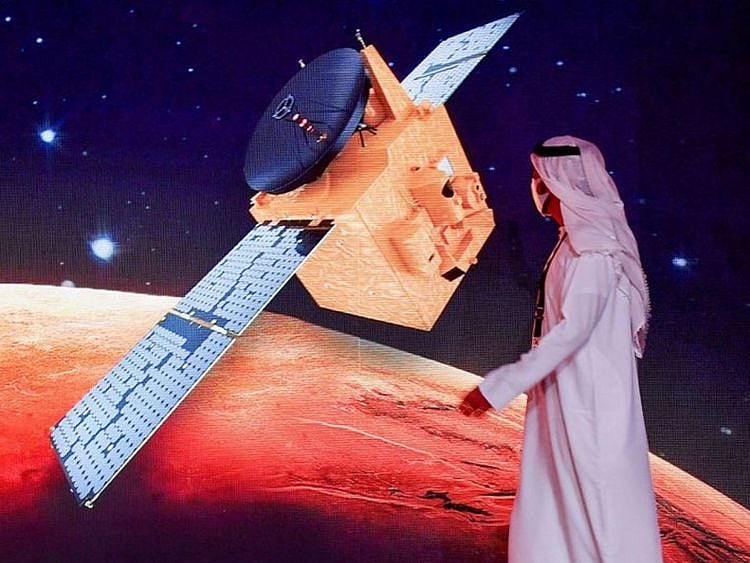Dubai: Emirates Mars Mission (EMM) will hold its ‘5th Annual EMM Science Workshop’ in Dubai on February 27 and 28 to provide hands-on experience on how to access EMM’s science products and get a better understanding of Mars’ atmosphere.
The two-day workshop at Address Sky View Hotel will be conducted in a hybrid format, facilitating both in-person and virtual attendance. UAE professors, academics, students, and anyone interested in space science and the Red Planet are invited to the annual science workshop, where there will be numerous talks discussing the findings by Hope Probe, the first Arab interplanetary mission to Mars.
To register in the workshop, visit the EMM website. Organisers said the first day will focus on a series of mini workshops across different topics, and the second day will focus on discussing Hope Probe’s latest results and current understanding of the Martian atmosphere and its turbulent climate.
Knowledge exchange
Omran Sharaf, EMM Project Director, said: “Holding the Emirates Mars Mission’s fifth scientific workshop is part of our continuous efforts to exchange knowledge and expertise gained through Hope probe with local and global science community, academics and research centres. Our aim is to build scientific and technical capacity to support UAE’s effort in building a competitive knowledge economy.”
Hessa Al Matroushi, Deputy Program Manager and EMM Science Lead, said: “The workshop coincides with the first anniversary of Hope Probe reaching Mars’ orbit on 9 February 2021. Since that historic day, the autonomous spacecraft has gathered unprecedented data on the Martian atmosphere, which has been shared with the global scientific community for the benefit of humankind. Our workshops will discuss the extraordinary findings and provide solutions to best utilize them in addition to highlighting engagement opportunities for the UAE science community through the mission.”
Accessing EMM data
The workshops include a session on ‘EMM Science Data Access’ which will provide hands on experience on accessing EMM science products through EMM Science Data Centre Website and through the provided Application Programming Interface [APIs]. It will also show the functionality available on the Data Centre’s website and the different search filters available.
Another workshop on ‘Working with EMIRS Data’ will shed light on the various Emirates Mars Infrared Spectrometer (EMIRS) products, focusing on the surface and lower atmosphere observations using infrared bands, a discussion of the calibration process, and hands-on exercises/ projects to help with using the data products.
There is also a workshop on ‘Working with EXI Data’ that will provide an overview of the various Emirates Exploration Imager (EXI) products which focuses on lower atmosphere observations using visible and ultraviolet bands, a discussion of calibration process, and hands-on exercises/projects to help with using the data products.
Understanding Mars atmosphere
A workshop on ‘Working with EMUS Data’ will introduce the Emirates Mars Ultraviolet Spectrometer (EMUS) products focusing on upper atmosphere observations, including atmospheric escape and the thermosphere/ionosphere region, a discussion of calibration process, and hands on exercises/projects to help with using the data products.
Other sessions will focus on using Java Mission-planning and Analysis for Remote Sensing, Mars Climate Database and Global Climate Modelling to understand the data-sets provided by the EMM Hope Probe. This will be done by comparing the prediction from a Mars Global Climate Model to the one used for weather forecasting and climate change studies on Earth – but adapted to the Martian environment .
Sign up for the Daily Briefing
Get the latest news and updates straight to your inbox
Network Links
GN StoreDownload our app
© Al Nisr Publishing LLC 2026. All rights reserved.
